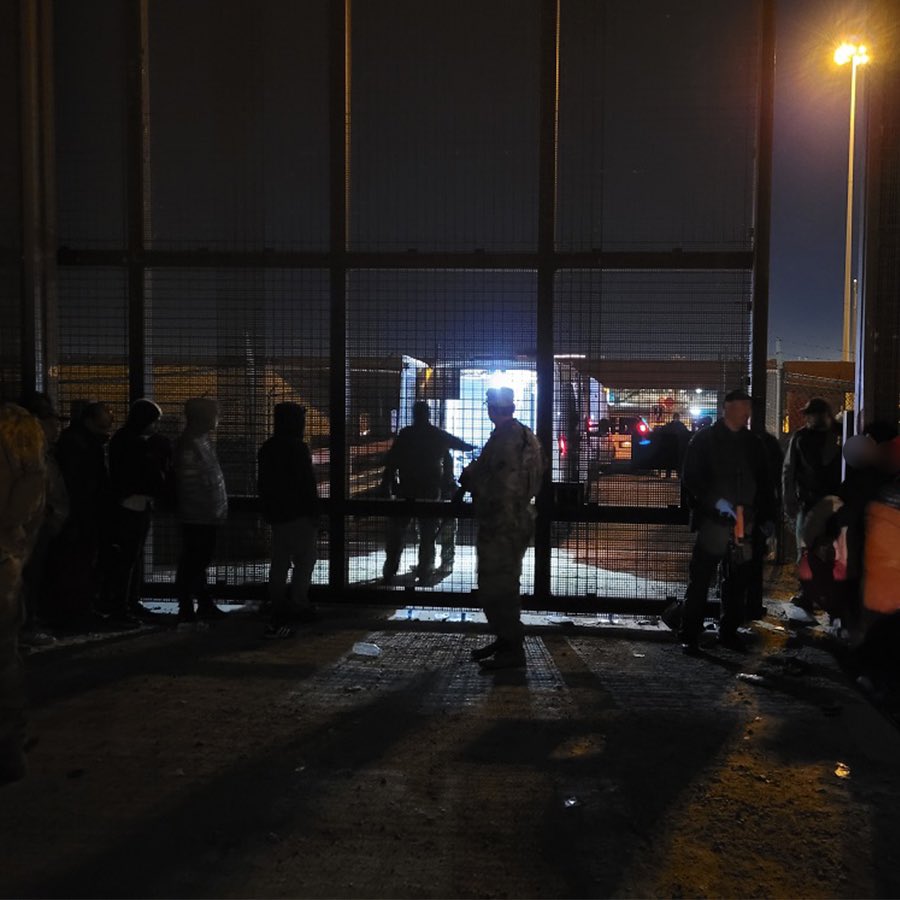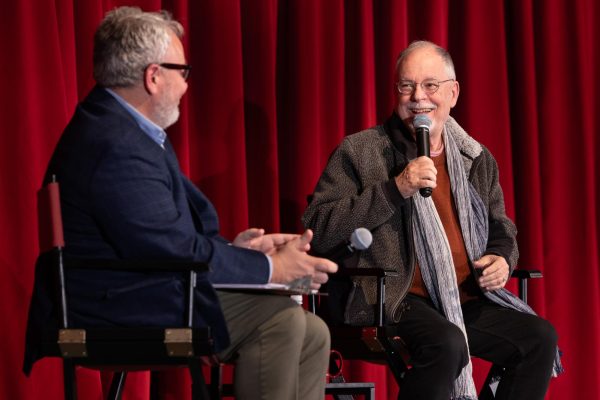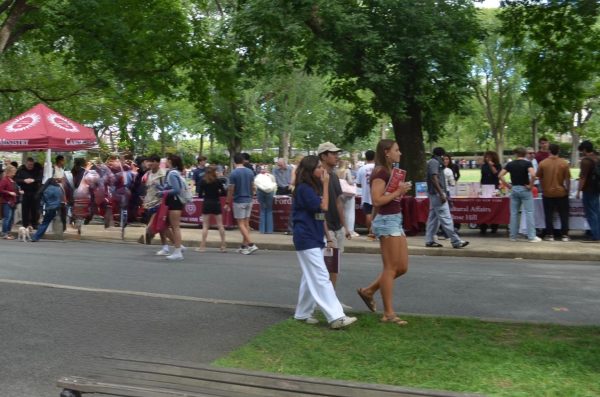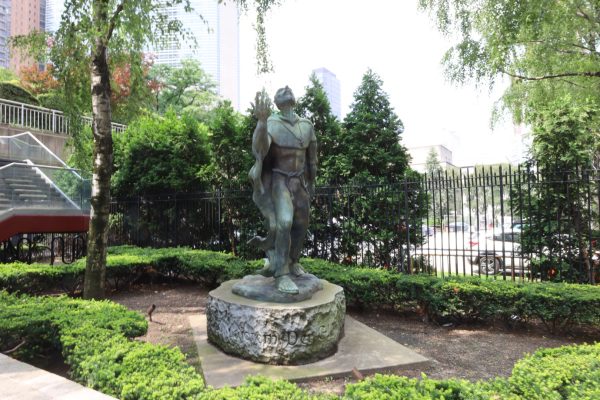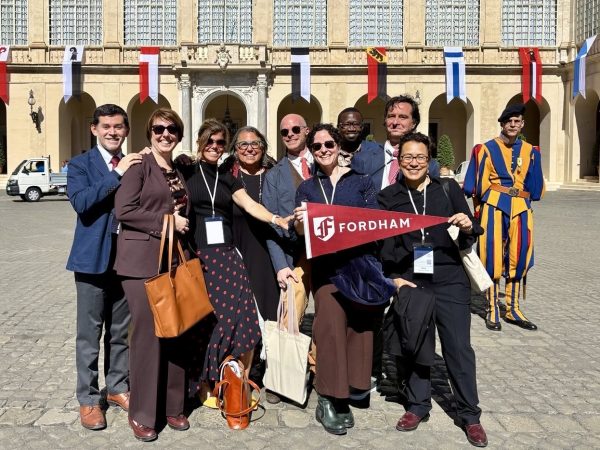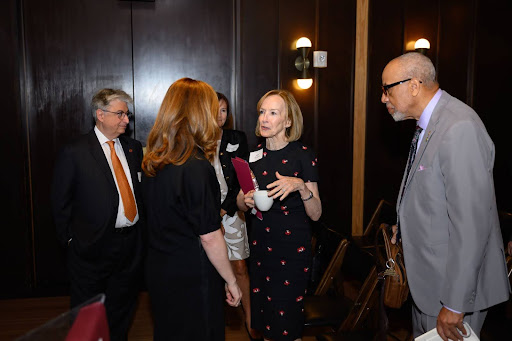Fordham Hosts Lecture on Migration at the U.S.-Mexico Border
On Feb. 7, Campus Ministry held a Common Grounds conversation titled, “Current Realities of Migrants and Asylum Seekers.” The event included a panel featuring Joanna Williams, executive director of the Kino Border Initiative; Power Malu, executive director of Artists, Athletes and Activists; and Adama Bah, a Guinean-born immigration reform activist.
On the topic of the border, the group consensus was made clear by Williams: “The approach to the border since the 1990s has been ‘if we can make people suffer more, then they won’t come to the U.S.’”
The Kino Border Initiative, which she has been working at for several years now, is a Jesuit humanitarian aid organization which seeks to “promote humane, just and workable migration” from their headquarters in Nogales, Sonora, Mexico. They process intake forms and provide clothing, food and housing to immigrants who have traveled to the U.S.-Mexico border. Approximately six to seven thousand people come from Mexico to the U.S. border every day, and stricter border laws have made it difficult for them to receive asylum.
Migrants were once processed at the border using the process of “metering,” which meant that only a certain number of people could be considered for passage each day. In addition, if a migrant was seeking asylum and expressed fear of returning to their home country, U.S. officials were required to consider their application on the spot, according to Williams.
However, this policy changed during the Trump administration with the creation of Title 42. Title 42 states that the U.S. Border Patrol is permitted to deny entry to any person who may pose a health risk to the country, including those who qualify for temporary protected status. Throughout the COVID-19 pandemic, this has resulted in migrants from dozens of countries being rejected from the border, even if they are seeking asylum.
This has required organizations like the Kino Border Initiative to take matters into their own hands, helping hundreds of migrants with their immigration paperwork. Williams states that, a lot of the time, they feel like “the gatekeepers of asylum.”
“There’s not a day we feel morally okay with it,” she said. However, without humanitarian aid, no migrants would have the opportunity to cross the border.
Power Malu, the executive director of Artists, Athletes and Activists, cited similar experiences working on the frontlines in the immigration fight in New York City. Although New York is a sanctuary city, “it doesn’t feel like it,” he said. This is because “our leadership doesn’t act that way.”
“Things are hard; it’s not easy, but we advocate for them,” said Malu. “They confront a lot of rejection, a lot of mistreatment, a lot of people who are gonna say harsh things, like ‘you’re coming here to take our resources’ or ‘you’re coming here to take our jobs.’”
Despite these obstacles, Malu and his organization continue to fight for New York City’s most vulnerable immigrant communities, especially in the wake of the ongoing migrant crisis.
In October 2022, Texas Governor Greg Abbott began sending buses of migrants to New York City without warning. Many called this move a political power play or an attempt to mock the Democratic party’s strong pro-immigration stances; this is especially true amongst New York legislators such as Rep. Alexandria Ocasio-Cortez.
The tremendous influx of migrants to New York City placed an “unprecedented burden” on the city’s shelters and resources. Although Mayor Eric Adams refused to turn any buses away, and has attempted to welcome the migrants with open arms, the government has turned to non-profits and aid organizations to do what they cannot.
“We can never rely on the government to do the work of the people,” said Malu. “If things have not changed at a policy or government level, we have to bring it back to the spirit and soul so that we can truly commit to our role to create real change.”
Artists, Athletes and Activists and its sister organizations have been setting the groundwork and filling in where the government has failed. While Malu expressed frustration at how politicians sometimes treat migrants – people – as commodities, he remained unwavering in his commitment to help those he can.
“We owe it to our existence to be able to reach out to one another,” he said.
Adama Bah is another immigration reform activist based in New York City. Born in Guinea, a country in West Africa, she was sixteen when her parents were detained by FBI agents and deported back to their home country. She spent most of her adolescence fighting for asylum and became a U.S. citizen in her early twenties.
In a sphere that is overwhelmingly dominated by Spanish-speaking migrants, Bah spoke on the prevalence of African immigrants and how language barriers affect access. She stated that there is a lack of representation for Black immigrants and, additionally, an increasing need for African and Middle Eastern languages, specifically citing Turkish and Farsi.
After the evacuation of the American soldiers from Iran and the subsequent takeover by the Taliban, Bah expressed her disappointment in how the U.S. government effectively “abandoned” its Iranian allies and American translators. Some that have managed to reach the U.S. are being denied at the border.
The beginning migrant crisis is something that Bah recalled vividly, stating that she learned of the first buses by word of mouth.
“Non-profits were not ready for the buses of migrants,” she said.
Familiar with the immigration process by experience, Bah explained that the bureaucracy is the hardest part for those seeking asylum and safe haven.
“They need documents, like marriage licenses,” she said. But many migrants abandon such paperwork in pursuit of safety, leaving them without proof of marriage, birth and other important documentation.
Many asylum applications also require negative pregnancy tests, confirmed by a hospital. Bah stated that she is working with a woman who was sent for a test at 1 p.m. that day; by 7 p.m., she was still waiting. This was commonplace.
“In Texas, the NGOs run the shelters, they do all of the immigration work,” said Bah. Conversely, in New York, advocates are fighting with the bureaucracy and shortcomings of a city that poses itself as safe passage, but is now inundated as a result of political theater.
The migrant crisis of New York is not stopping any time soon, and neither is the growing number of migrants at the southern border. But what remains steadfast is the dozens of groups and individuals who have committed themselves to doing what the government cannot, to serving people with empathy and compassion and to providing them with the resources they need for success and, ultimately, what is most valuable: safety.
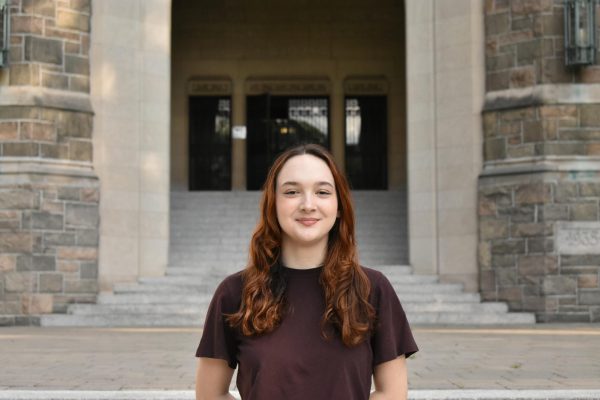
Samantha “Sam” Minear is a senior from Long Branch, N. J., majoring in international studies and communications. She started as a contributing writer...



































































































































































































